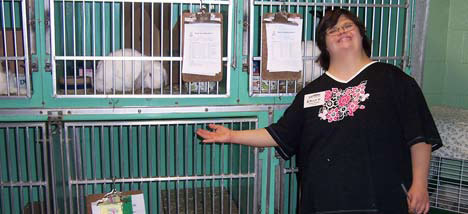
Supporting individuals with intellectual or developmental disabilities means helping them discover inclusive pathways into work and training. Whether you’re a parent, support worker, or advocate, building community connections is one of the most powerful tools available.
Here are practical tips to help create employment and training opportunities in your community:
- Set a Specific Meeting Time
If someone expresses interest, don’t leave it open-ended—lock in a date and time right away, and make sure to follow through.
- Keep It Brief
Let people know the meeting will only take about 15 minutes. This makes it easier for them to say yes and shows you respect their time.
- Prepare Like It’s a Sales Pitch
Come prepared with a few clear reasons why this opportunity benefits them. If you’re representing someone specific, highlight their strengths and how they can contribute to the workplace or community. Need some ideas on what to say – here are some ideas – How to Prepare to Talk to Employers — Like It’s a Sales Pitch
- Make a Strong First Impression
Be professional, friendly, and yourself. If they decline, thank them and move on. Don’t take it personally—it’s part of the process.
- Be Persistent, Not Pushy
It might take 20 or more conversations to find the right opportunity. Stay positive—each “no” gets you closer to a “yes.”
- Meet in Person When You Can
In-person meetings help build trust and make your intentions clearer. When that’s not possible, video or phone calls can still be effective.
- Look for Natural Fits
Look at where there might already be a natural fit between your skills and interests and community needs. For example, if you love animals, explore local pet stores or shelters. This creates a more authentic and likely match.
- Focus on Skill-Building First
Sometimes the best starting point isn’t a job, but an opportunity to build confidence or practice a routine. Volunteering, internships, or short-term roles can all serve as stepping stones.
- Start With Your Existing Network
Ask family, friends, co-workers, teachers, or other community members if they know of any opportunities. Even if they can’t help directly, they might know someone who can.
- Stay Hopeful and Professional
Don’t expect immediate results. Share your message clearly and respectfully. People may need time to consider how they can help.
Final Thought:
Creating opportunities isn’t always easy, but your effort and optimism can open doors—not just for one person, but for the whole community. Keep at it. You’re making a real difference.
